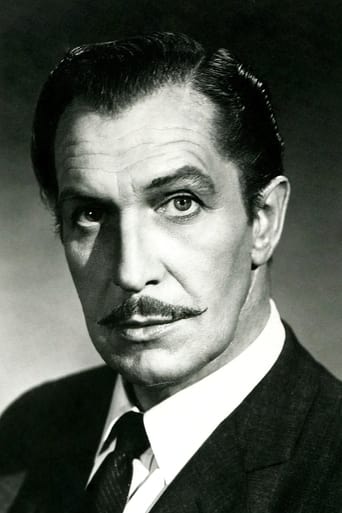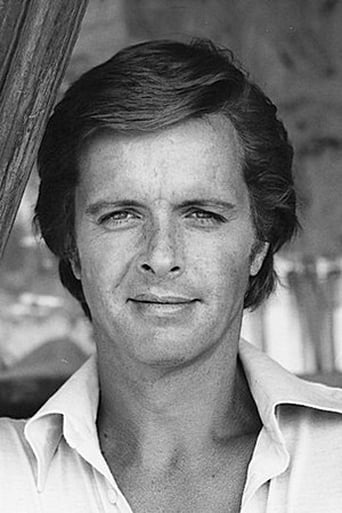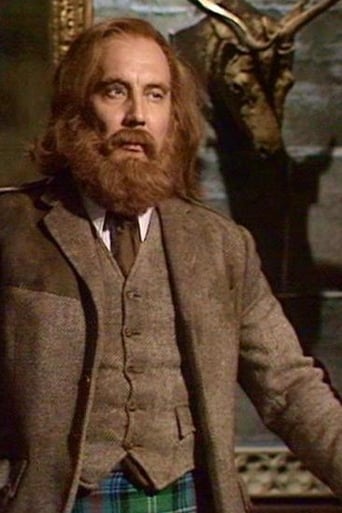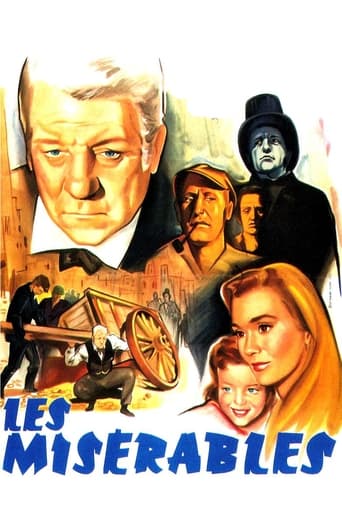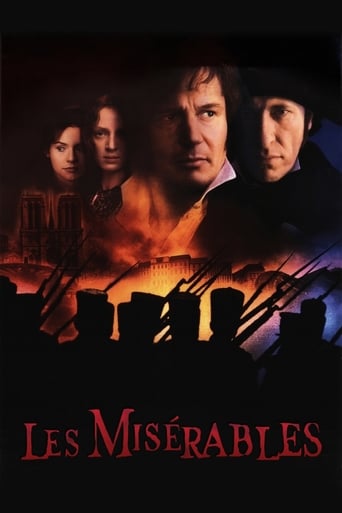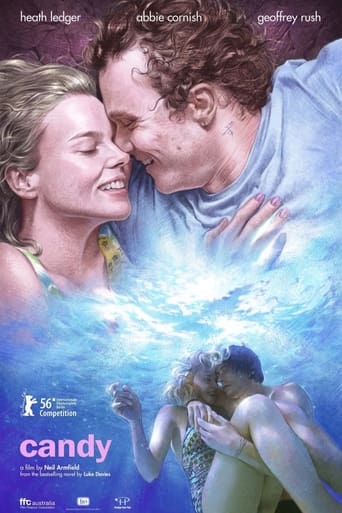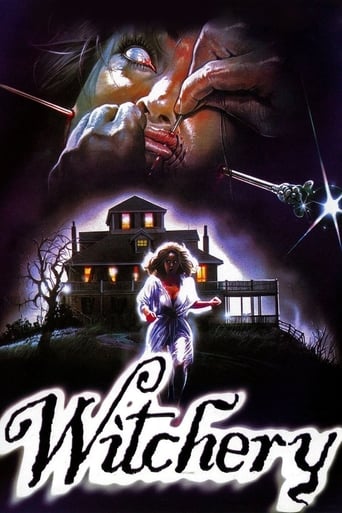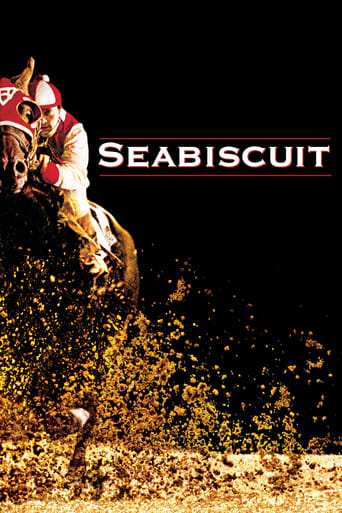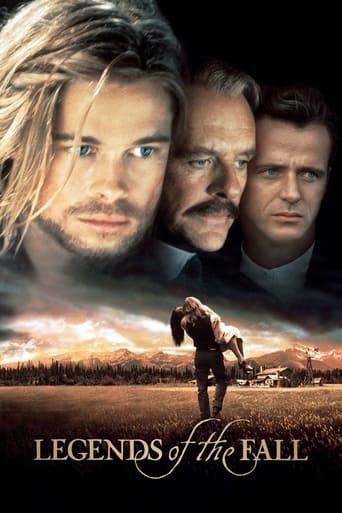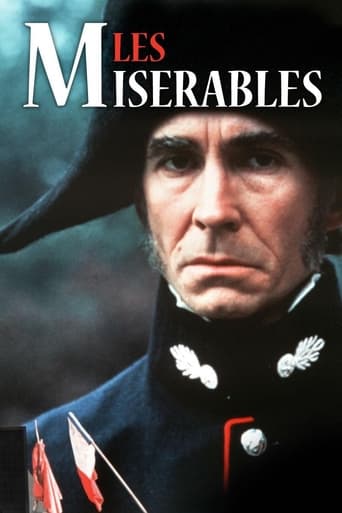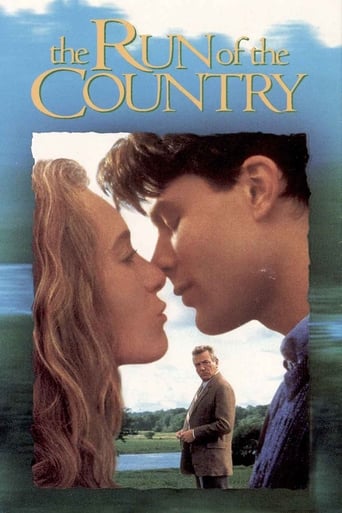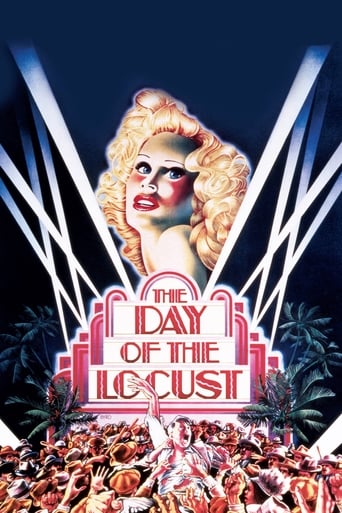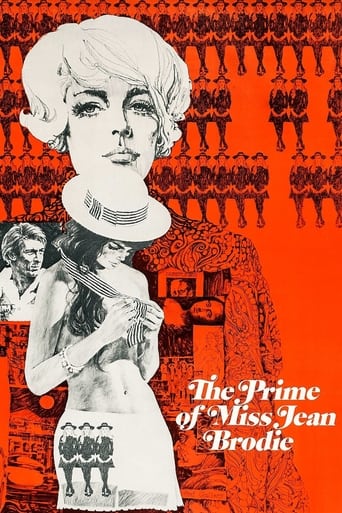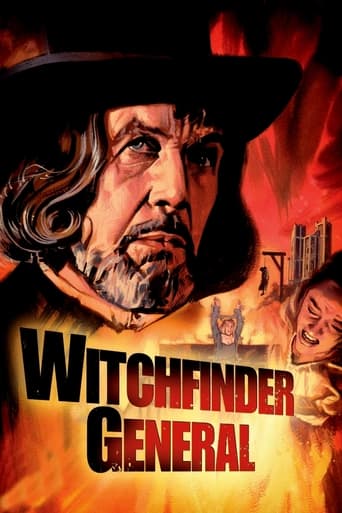
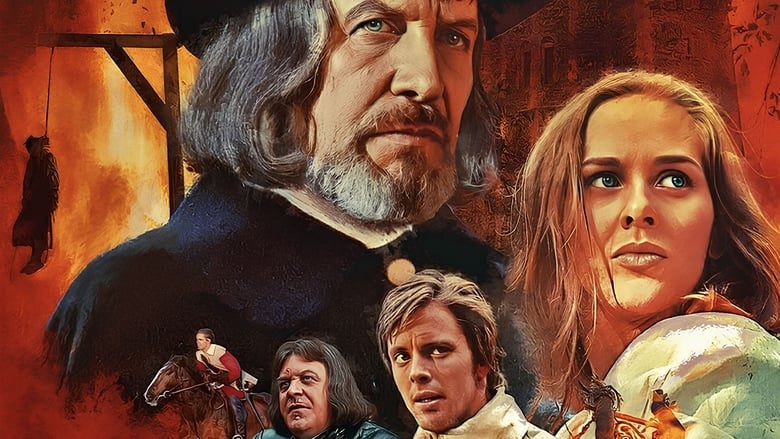
Witchfinder General (1968)
England, 1645. The cruel civil war between Royalists and Parliamentarians that is ravaging the country causes an era of chaos and legal arbitrariness that allows unscrupulous men to profit by exploiting the absurd superstitions of the peasants; like Matthew Hopkins, a monster disguised as a man who wanders from town to town offering his services as a witch hunter.
Watch Trailer
Cast


Similar titles
Reviews
I didn't want to. I had been a Vincent Price/horror fan, at that time, all my life and this put a serious dent in my 'innocent' enjoyment of 'scary movies'. As there is no 'witchcraft' or any supernatural element, the 'horror' is based on human cruelty/brutality, which I still contend is distinct from 'horror'. In fact, I can see this being described/credited/blamed as the granddaddy/progenitor of the brutal/cruel branch-off that supposed horror movies subsequently took. However, if horror movies are judged on the level of dread for what's coming, then fine... Even now, despite the datedness of the production (obvious red paint blood), the script is not bad and it is still possibly one of the cruelest movies made. Price's work as a 'highly fictionalized' real life person is one of his evil best.
With a fear of witches among the local peasants, a vengeful witch hunter and his assistant travel to a remote village supposedly steeped in witchcraft, and once a group of soldiers learns of their treacherous behavior set out to hunt them down and bring them to justice.There is a lot that really impresses in here. One of the main features involved here is the fact that the film is for the most part historically accurate in what happens. The characters, the towns, the accusations and the tortures and executions are all real- life scenarios and events that makes what happens all the more terrifying in knowing that what happened to the people in the film where actually done in real life. Watching the torture scenes where people are chained to a rock wall, stabbed and sliced with knives or constantly slapped around until a confession is heard, dumping the bodies into a river to see if they sink or swim and adjust the punishment according to what happened are extremely brutal and uncompromising, which makes them all the more terrifying when added to the realistic attitude and feel to the film. The realism extends to more than just the violence, which has some really impressive sets and setting, with the towns being realistically captured and giving off an impressive air of menace and foreboding that really works to the film's advantage. The rural villages and countrysides are even better as the wide-open spaces and large plains make them all the more spectacular and a real treat for the eyes. It also extends beyond that as well as Price has never been more evil, and he's never been this campy. You are never given the impression that you are supposed to like him or celebrate his acts, and this is one factor that makes the movie work. It's a great performance that really enlivens the proceedings and is an absolute joy to watch. This really isn't that bad of a film without a lot to dislike, but what's there is pretty big. The biggest issue is that the film itself doesn't seem as gory and violent as the reputation gives it. Returning to its grim tone and torturous violence today seems like a humdrum exercise, not because it has lost its power, but because the model it ushers in is a worn-out, overused feel to those of us with a passing interest in what happened. The tortures mainly consist of being slapped around until a confession and then the real torture begins, but the fact that most of the torture time is spent with the slapping technique, it leaves the feeling that it's more brutal in reputation than in practice. It also wastes a great opportunity by never concerning itself with any sociological or historical analysis of what that led to the conditions under which the witch-hunts occurred. It would've been a lot more interesting had the film actually done the trials and accusations to really amp up the rest of the hypocrisy and corruption present. That would've added to the feeling of total dire that the film exudes, and is a shame that it wasn't done in that manner. All in all, it's not bad but does feature a few big flaws.Today's Rating/R: Graphic Violence, Nudity, Language, an off-screen Rape and a mild sex scene.
Alongside the later films The Bloody Judge (1970) and The Devils (1971), Witchfinder General was one of a small sub-set of movies that can perhaps best be described as historical horror films. These took a true historical setting or character and adapted it for the screen while ramping up the salacious content to the point that they partially fell under the horror genre as well. I guess they were a natural off-shoot from the plethora of 60's Gothic costume horrors which were so popular at the time. The central character in this one was the infamous lawyer Matthew Hopkins who committed hundreds of horrendous crimes during the chaos and lawlessness of Civil War England. He was essentially a sadistic opportunist who carried out his murders in the name of God. This agent of the Royalists ended up murdering hundreds of 'witches'. Watching this film again recently, it got me to thinking how hundreds of years later things haven't really changed all that much, with a disturbingly parallel scenario playing out in the Middle East right now, where the group known as ISIS have exploited the chaos of the Syrian Civil War to commit a multitude of violent killings all in the name of their religion. It seems that religion, opportunism and hypocrisy still result in horrific violence today as they did back in the 17th century.This was renamed Conqueror Worm in the USA, which was the name of a poem by Edgar Allen Poe. This was clearly an attempt to associate it with the earlier Roger Corman directed, period-set Poe adaptions which also starred Vincent Price. Aside from part of the poem being read in the closing credits, the film has nothing to do with it though. It was directed by Michael Reeves who died shortly after its release at the age of 25 from an accidental over-dose. He did not want Price in the lead role; it was forced upon him by the distributor. In the event, perhaps unsurprisingly, there were tensions between them on set, although this may have inadvertently helped the film's tone. Price eradicates his typical hammy style and puts in an impressively chillingly cold performance. Truthfully, it's some of the best acting he ever did and shows the range he was capable of. Aside from the central character, this one overall is a pretty humourless and bleak affair, yet because of this it holds up much better than most of its contemporaries. It is apt that it takes this approach; however, as Hopkins is an utterly vile character who subjects many people - mainly women – to various horrific tortures, but also coerces the younger women into having sex with him. Like many religious fundamentalists, he is a hypocrite and a sadist. It's to the film-makers great credit that they were bold enough to tell the story without holding back on these unpleasant aspects.The film benefits from on location shooting in East Anglia where the atrocities actually happened. The locales are sometimes quaint, yet other times vaguely sinister but always authentic feeling. The period detail in general is pretty good, with good costuming etc. Visually this is a nice-looking film. Aside from Price there is good support work too from Ian Ogilvy as the hero and Hilary Dwyer as his victimised fiancé. The story itself plays out to a very fictionalised conclusion, yet this is neither the first or last historical film to do that. In summary, this is a very impressive and distinctive film.
Little is known of the real Matthew Hopkins, although when he died August 12, 1647 he was not yet thirty, less than half the age of the actor chosen to play him here, but Vincent Price built his career on horror films in which he played bad guys as well as good ones. Price was at his peak when this film was made, and such was his screen presence that his age was no more a barrier than his faintly discernible American accent. Although this film was of course made as a commercial venture, it was clearly intended to make a social point, one that appears to have been ignored dismally in view of the witch-hunts we have seen since its release: Cleveland, Rochdale and latterly "Operation Yewtree" on this side of the Atlantic; McMartin and Bakersfield on the other side. Among others.Undoubtedly "Witchfinder General" includes a fair amount of poetic licence; the real Matthew Hopkins died a natural death after writing a book about his dark profession. It is also unlikely he used his position to trade the sexual favours of comely wenches, but if you ever had any doubts as to how low a human being can sink in the service of the state, this film is as good a reminder as any.


